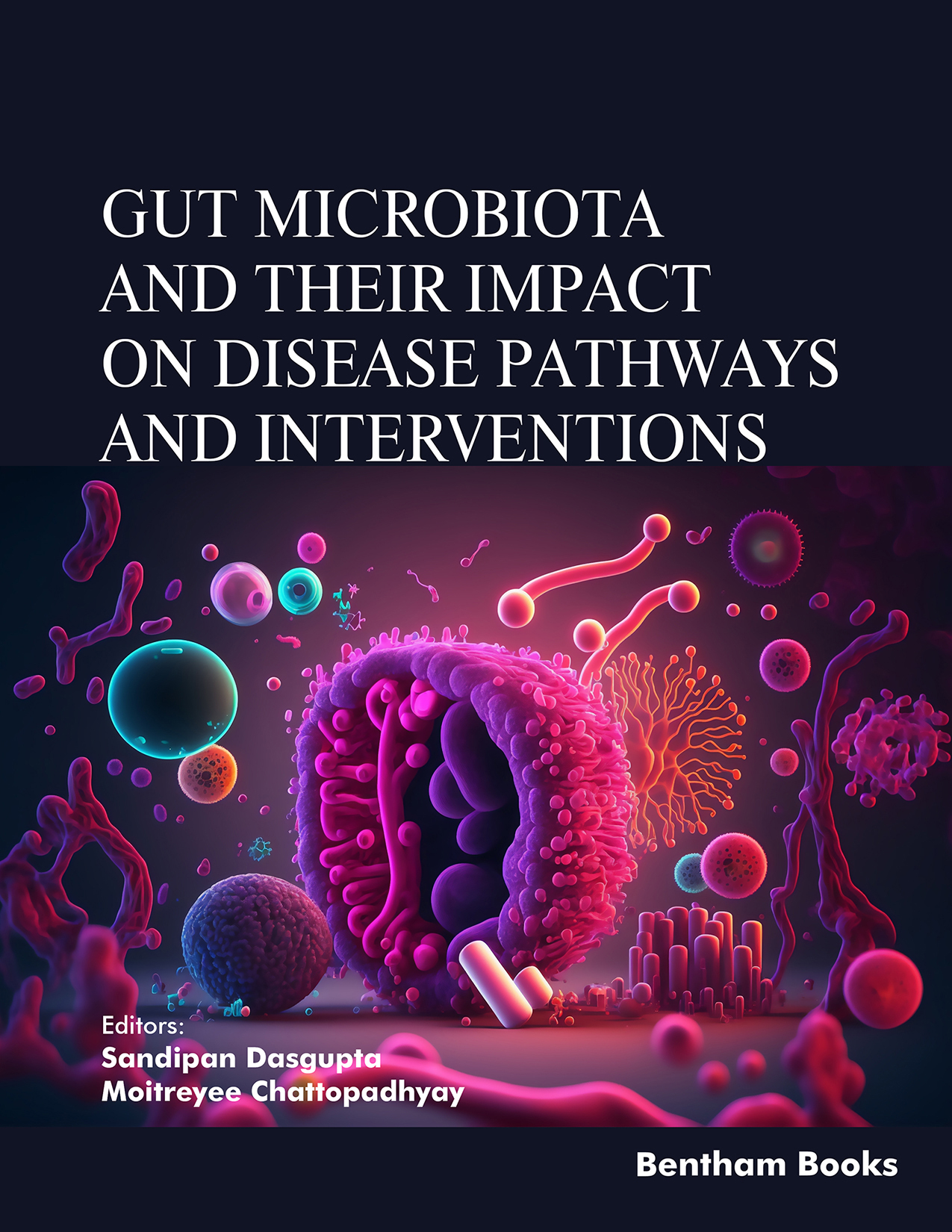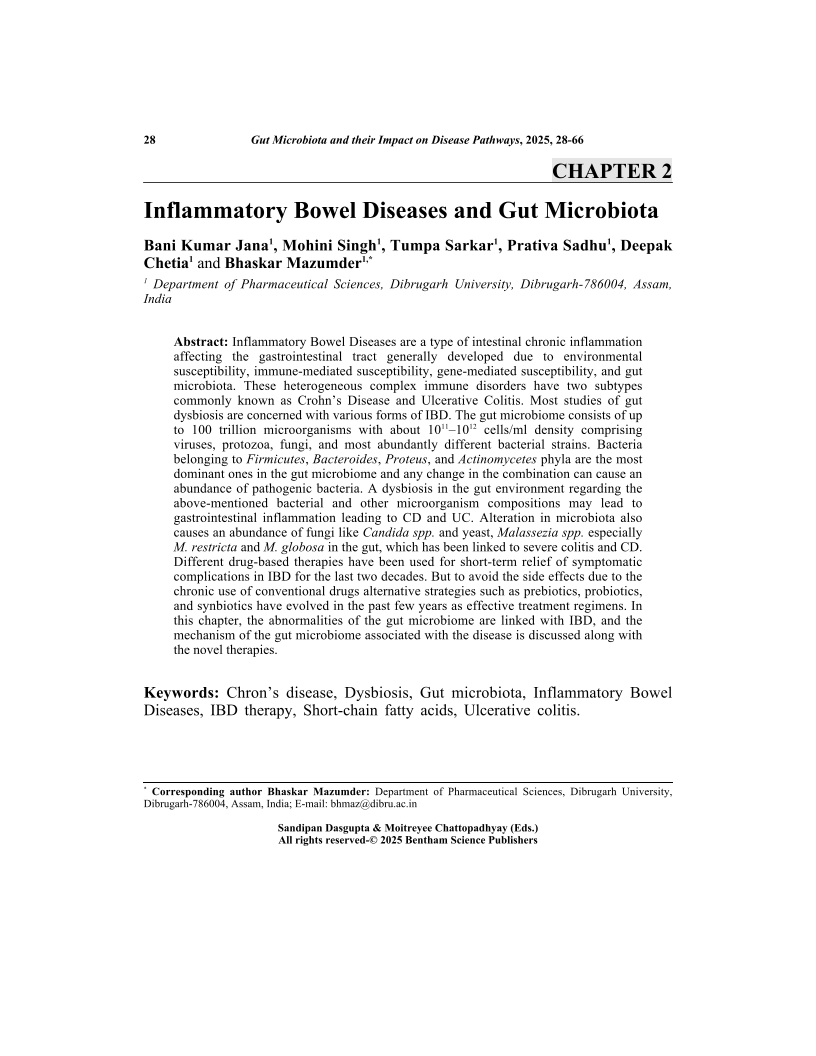Inflammatory Bowel Diseases and Gut Microbiota

- Authors: Bani Kumar Jana1, Mohini Singh2, Tumpa Sarkar3, Prativa Sadhu4, Deepak Chetia5, Bhaskar Mazumder6
-
View Affiliations Hide Affiliations1 Department of Pharmaceutical Sciences, Dibrugarh University, Dibrugarh 786004, Assam, India 2 Department of Pharmaceutical Sciences, Dibrugarh University, Dibrugarh-786004, Assam, India 3 Department of Pharmaceutical Sciences, Dibrugarh University, Dibrugarh-786004, Assam, India 4 Department of Pharmaceutical Sciences, Dibrugarh University, Dibrugarh-786004, Assam, India 5 Department of Pharmaceutical Sciences, Dibrugarh University, Dibrugarh-786004, Assam, India 6 Department of Pharmaceutical Sciences, Dibrugarh University, Dibrugarh-786004, Assam, India
- Source: Gut Microbiota and their Impact on Disease Pathways and Interventions , pp 28-66
- Publication Date: April 2025
- Language: English
Inflammatory Bowel Diseases and Gut Microbiota, Page 1 of 1
< Previous page | Next page > /docserver/preview/fulltext/9789815324549/chapter-2-1.gif
Inflammatory Bowel Diseases are a type of intestinal chronic inflammation affecting the gastrointestinal tract generally developed due to environmental susceptibility, immune-mediated susceptibility, gene-mediated susceptibility, and gut microbiota. These heterogeneous complex immune disorders have two subtypes commonly known as Crohn's Disease and Ulcerative Colitis. Most studies of gut dysbiosis are concerned with various forms of IBD. The gut microbiome consists of up to 100 trillion microorganisms with about 10111012 cells/ml density comprising viruses, protozoa, fungi, and most abundantly different bacterial strains. Bacteria belonging to Firmicutes, Bacteroides, Proteus, and Actinomycetes phyla are the most dominant ones in the gut microbiome and any change in the combination can cause an abundance of pathogenic bacteria. A dysbiosis in the gut environment regarding the above-mentioned bacterial and other microorganism compositions may lead to gastrointestinal inflammation leading to CD and UC. Alteration in microbiota also causes an abundance of fungi like Candida spp. and yeast, Malassezia spp. especially M. restricta and M. globosa in the gut, which has been linked to severe colitis and CD. Different drug-based therapies have been used for short-term relief of symptomatic complications in IBD for the last two decades. But to avoid the side effects due to the chronic use of conventional drugs alternative strategies such as prebiotics, probiotics, and synbiotics have evolved in the past few years as effective treatment regimens. In this chapter, the abnormalities of the gut microbiome are linked with IBD, and the mechanism of the gut microbiome associated with the disease is discussed along with the novel therapies.
-
From This Site
/content/books/9789815324549.chapter-2dcterms_subject,pub_keyword-contentType:Journal -contentType:Figure -contentType:Table -contentType:SupplementaryData105

